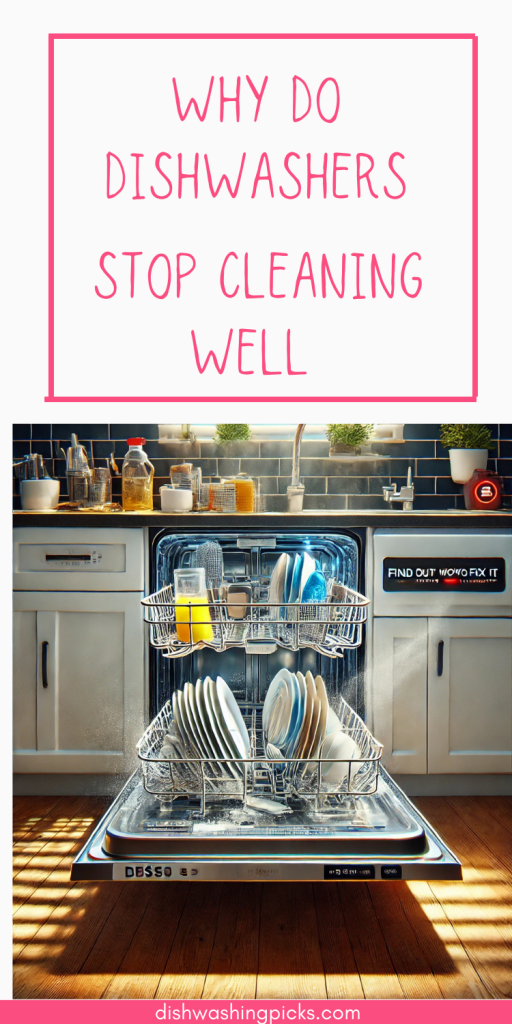Ah, the classic dishwasher dilemma—one day it’s your kitchen’s MVP, and the next, it’s leaving your plates crusty and glasses foggy. So, what gives? Why do dishwashers stop cleaning well? Let’s break it down.
1. Clogged Spray Arms
Those spinning arms inside your dishwasher are responsible for spraying water all over your dishes. But over time, they can get clogged with food particles, mineral buildup, or even bits of plastic. If water isn’t spraying properly, your dishes won’t get clean.
🔧 Fix it:
Take out the spray arms and rinse them under warm water. Use a toothpick or a small brush to clear out any clogged holes. If you live in an area with hard water, a soak in vinegar can help dissolve mineral buildup.
2. Dirty Filters
Most modern dishwashers have a filter at the bottom that catches food debris. If this gets clogged, water can’t drain properly, and your dishes will come out looking gross.
🔧 Fix it:
Check the filter (usually located at the bottom of the dishwasher). Remove any gunk, rinse it under running water, and scrub it with a brush if necessary. Doing this once a month can keep things running smoothly.
3. Wrong or Low-Quality Detergent
Not all dishwasher detergents are created equal! If you’re using a bargain-brand detergent or the wrong type (like liquid soap meant for hand-washing), your dishes won’t get properly cleaned.
🔧 Fix it:
Stick to high-quality dishwasher detergent pods or powders. If you have hard water, consider adding a rinse aid to prevent residue and water spots.
4. Hard Water Buildup
Speaking of hard water—if your water supply has a lot of minerals, they can build up inside the dishwasher, affecting performance. You’ll notice cloudy glasses, water spots, and a chalky residue on dishes.
🔧 Fix it:
Run an empty dishwasher cycle with white vinegar or a dishwasher cleaner once a month to break down mineral deposits. If the problem is severe, consider installing a water softener.
5. Overloading the Dishwasher
We’ve all been guilty of cramming as many dishes as possible into the dishwasher, hoping to avoid handwashing. But stuffing it to the brim can block water from reaching all the dishes, leaving them dirty.
🔧 Fix it:
Make sure you’re loading dishes properly—plates and bowls should face the spray arms, and don’t let large items block the water flow. Leave some space between items so water can circulate.
6. Worn-Out Parts
Like any appliance, dishwashers wear out over time. If your unit is older, the pump, motor, or heating element may be failing, which can impact cleaning performance.
🔧 Fix it:
If you’ve tried everything and your dishwasher still isn’t working well, it might be time for a professional repair—or even a replacement if it’s over 10 years old.
Final Thoughts
A poorly performing dishwasher is frustrating, but in most cases, the fix is simple! Regular maintenance—cleaning the spray arms, filters, and running a vinegar cycle—can keep your dishwasher running like new.
Have you dealt with a stubborn dishwasher before? What worked (or didn’t) for you? Let me know!

